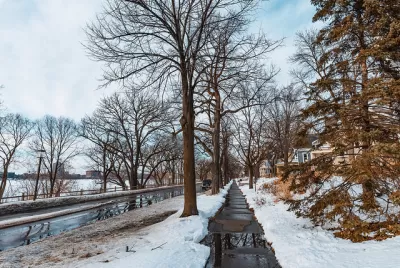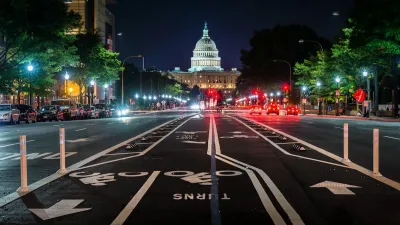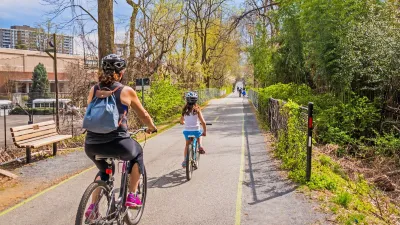Poor infrastructure can have powerful impacts on how different groups access resources and experience the public realm.

A panel of experts at the Shared Mobility Summit examined how poor infrastructure affects public health and dignity, reports Jeff McMahon. Neuroscientist Robin Mazumber pointed to hardships endured by the elderly and mentally ill: "[Poor infrastructure] caused loneliness. It contributed to a sedentary lifestyle." For Mazumber, a focus on universal design is key to making cities and the public realm more accessible and comfortable for all.
"At the heart of successful universal design is dignity, Mazumder said. When streets feel unsafe to cross, pedestrians have an undignified experience. When they feel unsafe to share, so do bicyclists." Mazumder points to "beg buttons" as one example of "undignified" urban design. In an example from Sweden, the government chose "to plough snow from sidewalks and bike paths first, instead of prioritizing streets" because "Sweden determined that 79 percent of its pedestrian injuries occurred during winter, and the overwhelming majority of those—69 percent—happened to women. An analysis found that women and children were more likely to be using icy sidewalks in winter than men, who were more likely to be commuting on ploughed streets." Injuries during wintertime went down by 50 percent.
"Infrastructure can also send discouraging messages to people who aspire to using alternative modes," as when unsafe roads prevent people from biking or walking safely or shared vehicles are tucked away in hard-to-find places. "The answer, which some UK governments have begun to pursue, is to put low-impact modes in the front, Roberts said, where they’re most visible and easiest to use."
Transportation systems, Zabe Bent, director of design for the National Association of City Transportation Officials argued, must be geared toward more than just getting people to and from work. "We just don’t think about access to food—and food security is huge—access to education," pointing out that only 30 percent of community colleges in the U.S. are near transit.
FULL STORY: How Infrastructure Decides Who Enjoys Dignity And Health

Alabama: Trump Terminates Settlements for Black Communities Harmed By Raw Sewage
Trump deemed the landmark civil rights agreement “illegal DEI and environmental justice policy.”

Study: Maui’s Plan to Convert Vacation Rentals to Long-Term Housing Could Cause Nearly $1 Billion Economic Loss
The plan would reduce visitor accommodation by 25% resulting in 1,900 jobs lost.

Planetizen Federal Action Tracker
A weekly monitor of how Trump’s orders and actions are impacting planners and planning in America.

Federal Homelessness Agency Places Entire Staff on Leave
The U.S. Interagency Council on Homelessness is the only federal agency dedicated to preventing and ending homelessness.

Restoring Northern India’s Himalayan ‘Water Temples’
Thousands of centuries-old buildings protect the region’s natural springs and serve as community wells and gathering places.

Milwaukee to Double Bike Share Stations
Bublr Bikes, one of the nation’s most successful, will add 500 new e-bikes to its system.
Urban Design for Planners 1: Software Tools
This six-course series explores essential urban design concepts using open source software and equips planners with the tools they need to participate fully in the urban design process.
Planning for Universal Design
Learn the tools for implementing Universal Design in planning regulations.
Caltrans
Smith Gee Studio
Institute for Housing and Urban Development Studies (IHS)
City of Grandview
Harvard GSD Executive Education
Toledo-Lucas County Plan Commissions
Salt Lake City
NYU Wagner Graduate School of Public Service





























